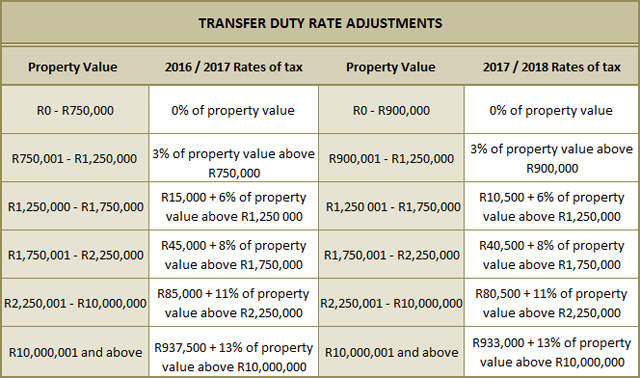
|
|
| |
|
April 2017
|
Property: Do You Have Automatic Rights to Views and Privacy?
|
“Diligence is the mother of good fortune” (Miguel de Cervantes)
Another warning to do your homework before you buy or develop property comes from a recent High Court decision to set aside a municipality’s approval of building plans.
From sea-view balconies to walled-in courtyards
- A 17-storey inner city building incorporated residential apartments on its higher floors, the municipality having passed plans for several apartments to be constructed with balconies or windows overlooking the common boundary with a neighbouring building. Some of these apartments provided city and sea views over the top of that building.
- Subsequently the developers of the neighbouring building obtained municipal authority to build several levels upwards, flush against the common boundary, right up against those apartments with balconies and only 3 metres from those apartments with windows.
- The effect of the added levels would have been “to change the character of the areas that were designed to be balconies into small courtyards confined between towering walls”.
- When they realised what was happening the affected apartment owners, who had not been given notice of the building plan application, rushed to court and obtained an interdict to stop construction pending a judicial review of the plan approval.
- On review, the Court set aside the approval of the building plans and ordered the municipality to reconsider them. In other words, Round 1 goes to the apartment owners, but the jury is still out on whether they or the neighbouring developer will ultimately emerge as the victors here.
Lessons for buyers: Legal restrictions and “legitimate expectations”
Note that this case, as the Court put it, was “not about any alleged right to a view. It arises out of allegations concerning what the applicants contend would be the unduly intrusive and objectionable character of an aspect of the building extension”.
What follows is a very simplified summary of a very complicated subject, not helped by some very divergent court decisions in the past. So take full legal advice on your particular circumstances. But work on the basis that you have no automatic entitlement to retain amenities like privacy, access to light, views and the like, so to stop your neighbour from building to your prejudice you will generally have to prove either -
- That the building is in contravention of a legal restriction - think title deed conditions, town planning/zoning/building restrictions and the like; or
- That the building, although complying with all legal restrictions, is “so unattractive or intrusive that it exceeds the legitimate expectations of the parties”.
What won this round for the apartment owners was the Court’s finding that the municipal officials had, through a misunderstanding of the law, “failed to consider and address the question whether a reasonable and informed purchaser ….. would foresee that the regulating authority, having approved balconies along the common boundary would permit the development of the adjoining erf in such a manner as to effectively destroy the utility of the balconies as such, and with the degree of overbearing intrusiveness that allowing a three storey solid wall to be built up hard against them would unavoidably occasion.”
That was a close shave for the apartment owners, so the important thing is to do your due diligence before buying a property. Factor in that your neighbour may in the future decide to take full advantage of his/her rights to develop and build, and if that happens you will find it difficult to complain. In this case for example the apartment owners “might reasonably have expected the views from those apartments to be blocked by future development ….. if regard were had to what was permitted in terms of the applicable zoning scheme regulations”.
A lesson for developers
Although generally it should be enough that your proposed new construction/development complies with all “legal restrictions”, there are exceptions. Make no assumptions here; they could be both mistaken and expensive.
|
|
Bad Bureaucrats - Threaten Them with Personal Liability
|
|
Whilst the vast majority of state officials are competent and honest, and deserving of our full support, there will always be a few “bad eggs” to contend with.
We’ve all had our run-ins with state bureaucracy, and where it causes you significant loss of any sort, ask your lawyer if you can sue. Act quickly; a 6 month time limit applies.
Of course first prize is always to avoid the hassle and risk of litigation by motivating an obstructive official into doing his/her job properly in the first place. And whilst threatening to go the legal route should help, there’s a problem here. If you win, government pays your damages and legal costs. In other words, it’s not the errant official who risks having to cough up; it’s you and I as taxpayers.
The good news is that our courts have signalled clearly that they will not tolerate the actions of that minority of state officials who seem to think that they can trample all over our constitutional rights with impunity.
How the “Social Grants Crisis” judgment helps
The Constitutional Court case around the social grants crisis finds the Social Development Minister at risk (as at date of writing) of having to pay the many millions in legal costs at stake in that case “from her own pocket”.
She has to show cause on affidavit why that shouldn’t be ordered, and it will be interesting to see what argument she advances in light of the Court’s reference to her “extraordinary conduct” and its finding that: “The office-holder ultimately responsible for the crisis and the events that led to it is the person who holds executive political office. It is the Minister who is required in terms of the Constitution to account to Parliament. That is the Minister, and the Minister alone.”
Regardless of the outcome, errant state officials and their superiors have now been given an unambiguous warning by the highest court in the land - they risk personal liability for legal costs caused by their dereliction of duty.
In the High Court: The “bull in a china shop” doctor
A recent High Court decision illustrates the sort of unacceptable conduct that will expose a state official to the risk of paying costs personally-
-
A specialist radiology practice, operating in an academic hospital, obtained two interim court orders against a provincial Department of Health which had tried to close them down by removing their equipment and locking them out.
-
Disputes over the validity of a lease of equipment and over the practice’s rights to treat private as well as public patients led to litigation.
-
Whilst the litigation was still pending, two senior Departmental officials (both doctors) “decided to act as prosecutor, judge and executioner on the legal issue ... thereby taking the law into their own hands”.
-
Much “harassment and intimidation” later, the practice’s equipment was unlawfully seized and removed by one of the officials, accompanied by a “platoon” of security guards. In defiance of court orders the Department failed to return the equipment and prevented access to the practice. Most alarmingly the state doctor in question, again with a platoon of security guards, was found to have intruded on a “life-threatening, intricate and complicated procedure” in an operating theatre.
-
He had, said the Court, “acted like a bull in a china shop” and is perhaps lucky that an application to have him committed to prison for 90 days for contempt of court could not be pursued.
-
And it certainly didn’t help the Department’s case that the radiologists were specialists with “rare skills” who mostly treated public patients, nor that the officials had acted in a “high-handed, arrogant and aggressive manner”, had displayed an “arrogant, foolhardy and recalcitrant attitude”, and had acted “in flagrant disregard of the laws of our country”.
- The Court confirmed both orders against the Department with a punitive attorney and client scale costs order, but the real victory for the public lies in the Court’s clear indication that - had it been asked to do so - it would have ordered the errant officials to pay the legal costs personally.
So the next time a “bad egg” bureaucrat abuses your rights . . .
When you bump heads with one of the “bad eggs” try this - have your lawyer formally warn him/her (and their superiors) that you will do everything you can to hold them personally liable for all your costs. Our courts are behind you!
|
|
Religious Discrimination in the Workplace
|
|
Another warning to employers to pro-actively avoid any form of unfair discrimination comes from a Labour Court’s award of compensation to an employee found to have been discriminated against because of her religion.
Discrimination and automatic unfairness
The Labour Relations Act (LRA) renders dismissal automatically unfair if the reason for dismissal is - amongst others - discrimination, direct or indirect, “on any arbitrary ground, including, but not limited to race, gender, sex, ethnic or social origin, colour, sexual orientation, age, disability, religion, conscience, belief, political opinion, culture, language, marital status or family responsibility.”
However “a dismissal may be fair if the reason for dismissal is based on an inherent requirement of the particular job”.
Forced to work on the Sabbath
- A company manager refused to participate in stock-taking on Saturdays because as a Seventh-day Adventist she was unable to work on a “Sabbath” (Friday sunset to Saturday sunset).
- She had however participated in stock-taking on other days, she had worked overtime outside the Sabbath, and her employer was generally satisfied with her work.
- A senior manager had been derogatory in public about her religious affiliation.
- Although her contract of employment obliged her to work overtime as and when necessary, it did not specify that stock-takes were scheduled for Saturdays nor that she was to work overtime on Saturdays.
- She was awarded compensation of R60,000 for unfair discrimination, the Court dismissing the employer’s defences that the dismissal was based on incapacity rather than religious discrimination, that Saturday stock-takes were an essential requirement of the job itself, and that the employee’s dignity had not been impaired because the senior manager’s abuse was a once-off event.
|
|
Property Buyers/Sellers and Budget 2017
|
Transfer duty rates
A sliver of good news in Budget 2017 was the 20% increase in the transfer duty threshold from R750,000 to R900,000. That should help both first-time and buy-to-let buyers, and hopefully it will help stimulate the property market overall. Even for buyers at the high-end of the market, the very fact that transfer duty wasn’t increased is in itself good news.
Have a look at the table below for details -

Source: National Treasury
Non-resident sellers
If you aren’t resident in South Africa and sell property for over R2m, the buyer has to keep back, and account to SARS for, “withholding tax” at a specified rate. In some circumstances you can apply for a tax directive to withhold tax at a lower or even zero rate - ask your conveyancer about this. And if your actual tax liability is in due course assessed at less than the amount withheld, you will be due a refund for the balance.
With the general tax increases applicable from 1 March, the amounts of withholding tax have increased as per the table below -
|
|
Your April Website: Robot Rights and the Law
|
It may sound like science fiction, but soon we are all going to have to follow the European Parliament’s lead in thinking about how our society, our law and our insurance industry must adapt to the rise in Artificial Intelligence.
How long will it be before we recognise legal rights and duties for “electronic persons”?
“Robot rights: at what point should an intelligent machine be considered a ‘person’?” by Kyle Bowyer on The Conversation is an interesting look at how, with artificial intelligence meshing ever more pervasively into our daily lives, we will soon have to contend with some very strange new concepts.
Our law already recognises “natural persons” (you and I) and “juristic persons” (companies, close corporations, bodies corporate, trusts etc). “Electronic persons” could be just around the corner.
Time to prepare for the future!
Dipping into the OED
“Scrumdiddlyumptious”, adj. 1. (Of food) “extremely tasty; delicious” 2. (Of a person) “very attractive”.
|
|
Note: Copyright in this publication and its contents vests in DotNews - see copyright notice below.
|
| |
 |
 |
|
|











